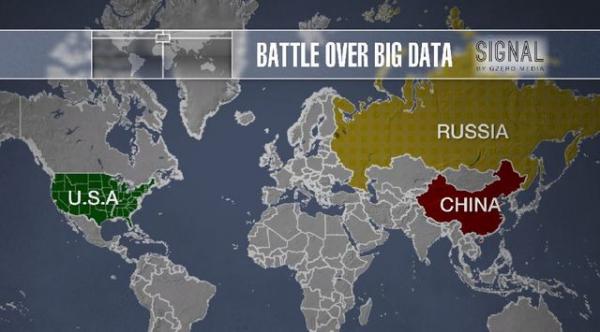China, Russia and California confirm urgent, worldwide need for Personal Clouds
“Data used to be much simpler”. Too simple, probably. Starting this year, we have one more reason to deploy personal clouds as soon as possible: peak data governance.

<u><em><strong>CAPTION:</strong>
<a href="https://www.msn.com/es-xl/video/viral/global-battle-brewing-over-big-data/vp-BBIMizF" target="_blank">Battles should be fought only when really needed, and at the RIGHT level (image source: snapshot from MSN.com)</a>
</em></u>
The European Union with its GDPR, says Danny Cricthton at TechCrunch is hardly the only government enhancing its data sovereignty:
- China issued a law requiring all cloud computing and Chinese customer data to be hosted on China-based servers
- Russia has also been blocking Google and Amazon cloud services
- Many other countries have laws affecting, each with its own standards, how data can be stored and transmitted as well
- within the United States, data laws are increasingly being drafted at the state level
The common purpose of all those laws is to “bring data back home and ensure that the desires of a country’s people (and, of course, its leaders) can be imprinted on how that data is used”. The common result is that the same laws are “enormously complicated and completely incompatible with one another”, to the point that startups, but even Fortune 500 companies, are “in no position to be able to handle these complexities without significant assistance”.
This complexity, Cricthton concludes, is the reason why cloud providers are going to strike gold: “Storing your own data isn’t just risky from a security perspective, it is also increasingly untenable in the fast currents of this data sovereignty world”.
Yes, but which providers? Of WHICH clouds?
So far, I agree with Cricthton. It is also likely that, as he says, that “it’s the largest tech companies [namely Google, Amazon and the likes] that are going to have the comprehensive data services required to manage this new terrain effectively.”
I just believe that we should avoid those new “comprehensive data services as much as possible, for the sake of privacy and data sovereignty, but also for the very reason Cricthton describes. If data governance has reached this complexity, that is just one more proof of what I said some months ago:
it is time, also because it is much simpler, to put governance back where it belongs, and should have always remained, that is laws, combined with direct responsibility and real data and identity portability.
My own personal proposal for doing this for personal clouds is here. A proposal for community clouds, instead is the CommonsCloud by the Free Knowledge Institute and others (*). Let’s go for solutions like THOSE, rather than give even more power to the same few digital mammoths.
(*) Disclaimer: I am a Board Member of FKI
Who writes this, why, and how to help
I am Marco Fioretti, tech writer and aspiring polymath doing human-digital research and popularization.
I do it because YOUR civil rights and the quality of YOUR life depend every year more on how software is used AROUND you.
To this end, I have already shared more than a million words on this blog, without any paywall or user tracking, and am sharing the next million through a newsletter, also without any paywall.
The more direct support I get, the more I can continue to inform for free parents, teachers, decision makers, and everybody else who should know more stuff like this. You can support me with paid subscriptions to my newsletter, donations via PayPal (mfioretti@nexaima.net) or LiberaPay, or in any of the other ways listed here.THANKS for your support!